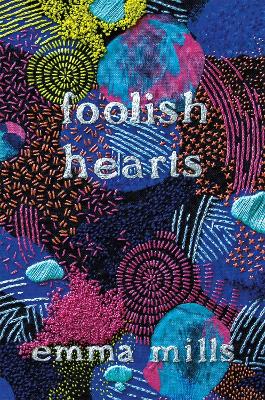Reviewed by justine_manzano on
Naturally, I rushed to read it. By chapter 3, I was in love. I rarely blog book reviews, but I’m planning to start doing more this year. My format will look like what you see below. Now, onward to the vital statistics.
Book Summary: When Claudia accidentally eavesdrops on the epic breakup of Paige and Iris, the it-couple at her school, she finds herself in hot water with prickly, difficult Iris. Thrown together against their will in the class production of A Midsummer Night’s Dream, along with the goofiest, cutest boy Claudia has ever known, Iris and Claudia are in for an eye-opening senior year.
Smart, funny, and thoroughly, wonderfully flawed, Claudia navigates a world of intense friendships and tentative romance in Emma Mills’s Foolish Hearts, a young adult novel about expanding your horizons, allowing yourself to be vulnerable, and accepting―and loving―people for who they really are.
What I enjoyed: The vibe of this book is fun and light, while still tackling real, human problems. Nobody is perfect here, everybody is a little odd, the dialogue is fun and snappy. I loved the relationship bits, and I have major love for the guy who snags Claudia’s interest, likable and over-the-top, Gideon Prewitt. With a cast of characters that truly felt like people cycling in and out of a real high schooler’s life, and an interesting plot about preparing for a play (the drama geek in me happy danced a bit), this story is all at once touching and relatable. Claudia is a fun heroine, a little deadpan, a little flawed, but a good person a heart. Tackling topics like avoiding change and fearing the unknown future, two topics that I’ve had a personal lifelong struggle with, Foolish Hearts follows Claudia into new friendships, new experiences, and new emotions. I clutched this book to my chest when I completed it.
What I’d avoid: I definitely wanted to feel more connected to Zoe. While the story is supposed to be about Claudia growing away from her and accepting that she must become her own person, feeling detached from Claudia’s best friend made it somewhat difficult to feel Claudia’s fear. It doesn’t truly harm the story, but there are places where I wish Zoe got a little more screen time, so I could truly feel the disconnect forming instead of simply be told it was happening.
Would I recommend it: For fans of YA Contemporary Romance, this book will make your heart flutter. But it’s not all about romance. It’s about friendship. The cast is diverse and realistic. Definite recommend.
What can I learn from it: I need to read this again and examine the ways she managed to introduce the reader to a large group of high school characters and keep them in the surroundings without diving too deeply into their character development, and also never really losing track of any of them. I attempted this in Never Say Never, and I’m truly hoping I managed this even half as well. Possibly? Either way, ALWAYS BE LEARNING.
In the end, Foolish Hearts was a fun, light and enjoyable read. I’d definitely recommend it, and it’s getting a place in my Pitmad pitches thanks to its very similar tone. Foolish Hearts + Greek Mythology = Never Say Never. That sounds fun, doesn’t it?
Reading updates
- Started reading
- 21 March, 2018: Finished reading
- 21 March, 2018: Reviewed
